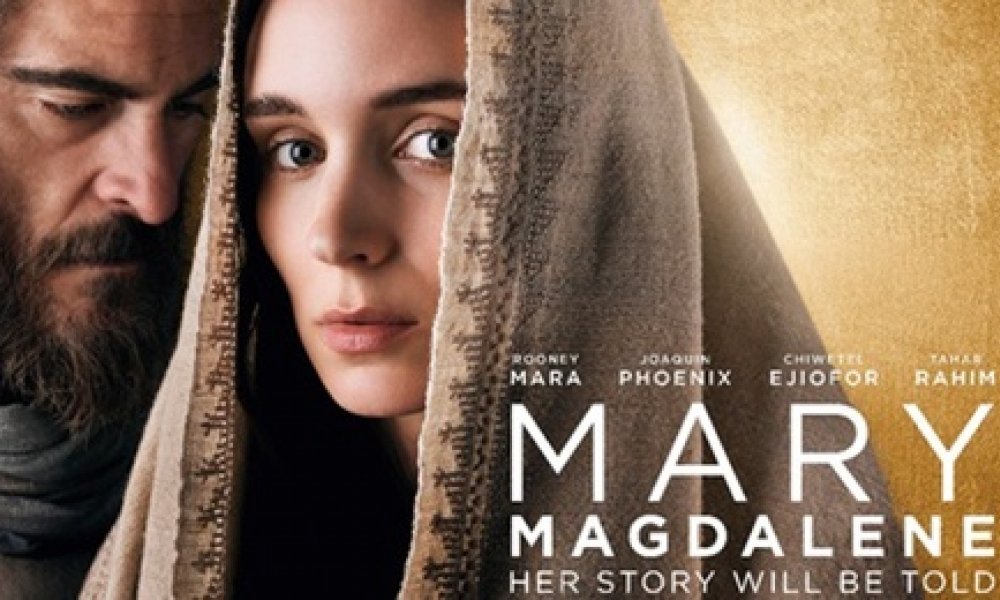Mary Magdalene is a 2018 biblical drama film directed by Garth Davis, known for his work on Lion (2016). The film explores the life of Mary Magdalene, portrayed by Rooney Mara, who has often been misunderstood in religious texts and pop culture. This retelling offers a more compassionate and nuanced portrayal of her life, focusing on her spiritual journey and her relationship with Jesus Christ. The film also stars Joaquin Phoenix as Jesus, with a supporting cast that includes Chiwetel Ejiofor and Tahar Rahim.
Plot Summary
Set in 1st century Judea, Mary Magdalene tells the story of a young woman from the small village of Magdala who seeks to find her own path in life, away from the expectations of her family and society. In a time when women had few rights and were often relegated to roles of subservience, Mary, portrayed as a strong-willed and independent woman, rebels against the traditional expectations placed upon her.
She meets Jesus (Joaquin Phoenix), a preacher who is gathering followers with his revolutionary teachings of love, forgiveness, and redemption. Mary is drawn to his message, and, after a transformative experience, she becomes one of his most devoted followers. The film chronicles her journey alongside Jesus, her role in his ministry, and her close relationship with him, particularly her role as a witness to his crucifixion and resurrection.
Rather than focusing on the sensationalized portrayals of Mary Magdalene in history, Mary Magdalene presents her as a deeply spiritual woman who questions the world around her and is profoundly moved by Jesus’ teachings. The film explores themes of faith, redemption, and the role of women in religious narratives.
Main Cast and Characters
- Rooney Mara as Mary Magdalene, a complex and compassionate woman who defies social norms to follow Jesus and embrace his message of love and equality.
- Joaquin Phoenix as Jesus, the charismatic and revolutionary leader who spreads a message of love, forgiveness, and spiritual awakening.
- Chiwetel Ejiofor as Peter, one of Jesus’ disciples who struggles with his faith and the growing tensions around their mission.
- Tahar Rahim as Judas Iscariot, another disciple of Jesus, whose eventual betrayal plays a pivotal role in the narrative.
The film features powerful performances by the cast, especially Mara, whose portrayal of Mary Magdalene is both empathetic and deeply human.
Themes and Style
Mary Magdalene explores themes of spirituality, gender, and the misrepresentation of women in religious texts. By focusing on Mary’s personal journey, the film presents a different perspective on a figure often depicted in a more controversial light. It emphasizes her role not only as a follower of Jesus but also as a woman who challenges the patriarchal structures of her time.
The film is shot in a naturalistic style, with sweeping landscapes and intimate close-ups, capturing the starkness of the desert and the emotional depth of the characters. The storytelling is meditative and introspective, with a focus on inner transformation and the quiet strength of its protagonist.
Audience Reception
Mary Magdalene received a mixed-to-positive reception from critics. While many praised the performances, particularly Mara’s nuanced portrayal of Mary, the film’s pacing and tone were seen as slow and contemplative, which may have alienated some viewers. Nonetheless, it was appreciated for its thoughtful take on a well-known biblical story and for its exploration of the female experience in a religious context.
The film was also noted for its sensitive handling of Mary Magdalene’s character, offering a more progressive interpretation of her story, which was welcomed by those who felt she had been misrepresented in past adaptations of the Gospels.
Conclusion
Mary Magdalene (2018) is a thought-provoking and intimate retelling of the life of one of the most misunderstood figures in the Bible. Through powerful performances, particularly by Rooney Mara, and a focus on spirituality and personal transformation, the film offers a fresh perspective on the role of women in religious narratives. While it may not appeal to all audiences due to its slow pace, it provides a meaningful exploration of faith, redemption, and the strength of a woman’s voice in the history of Christianity.
